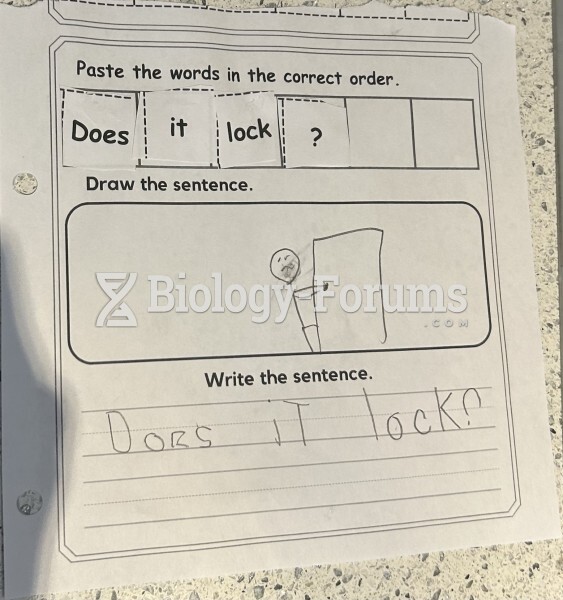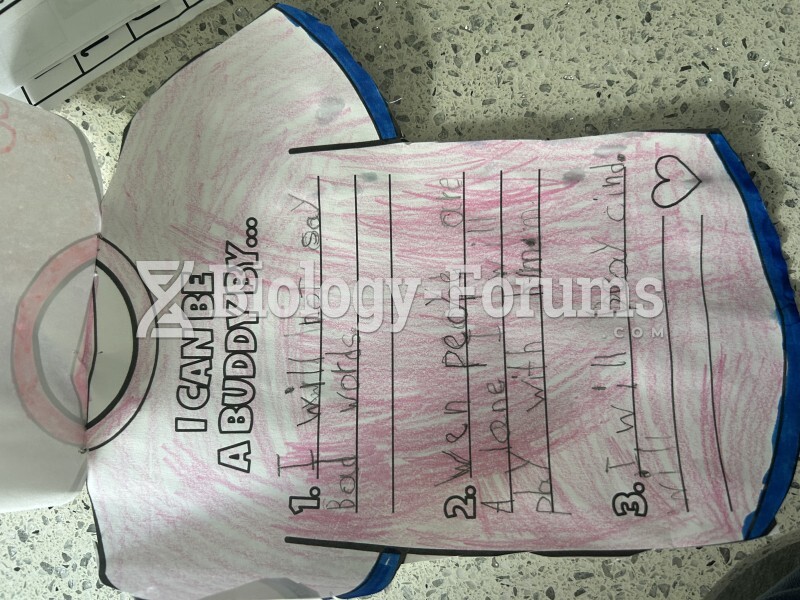Answer to Question 1
Suggested Response: Mr. Winn needs to incorporate the following four elements of observational learning:
1 . Attention: He must get students' attention and hold their attention while he explains each step of the three-step process. He needs to use a chart or other visual that specifies the steps. He needs to model the process and allow students to observe each step of the process. It will be more effective if Mr. Winn involves the students by asking brief questions or engaging students in dialogue about the steps as he carries out the process.
2 . Retention: Mr. Winn needs to make sure students can remember the steps. He might use a graphic organizer and give each student a copy. He might also use the sample he modeled and post it on the wall where everyone can see it.
3 . Production: He needs to give students opportunities to practice the process right away. As students practice, Mr. Winn should walk around the room and monitor and give feedback. As he gives feedback, he should refer back to the model.
4 . Motivation and Reinforcement: Mr. Winn also needs to reinforce students. As he monitors, he might give direct reinforcement to students who succeed quickly while prompting students who need a tip. He might get the attention of everyone in the class and verbally reinforce one or more class leaders who model the process accurately. This provides vicarious reinforcement and helps motivate the class to persist.
Text Reference: Modeling: Learning by Observing Others
Answer to Question 2
Suggested Response: Albert Bandura identified four sources of self-efficacy expectations: mastery experiences, physiological and emotional arousal, vicarious experiences, and social persuasion.
1 . Reid has not had mastery experiences in writing assignments. He has not successfully completed writing assignments and met the goals of the task. This is clearly a source of low self-efficacy for writing for Reid.
2 . Reid is interested in reading, but not writing. He puts little effort into writing assignments. He lacks emotional arousal and does not light up or get excited about writing. This is another source of low self-efficacy.
3 . We are uncertain about Reid's vicarious experiences with writing success. Vicarious experiences could help Reid increase his self-efficacy for writing. After all, he loves to read, and the books he reads are written by authors. He might be prompted to think about the writing success of one or more authors whose works he reads.
4 . We are also uncertain about feedback Reid has received other than low grades in writing. The low grades on his half-hearted efforts to complete writing tasks are obviously another source of low self-efficacy.
When Reid missed school in fifth grade, he needed help to catch up and guidance to achieve mastery experiences. He still needs those experiences. He also needs to frame writing assignments in ways that interest him. He needs connections to the successes of others and feedback that encourages him to reach writing goals.
Text Reference: Self-Efficacy and Agency







